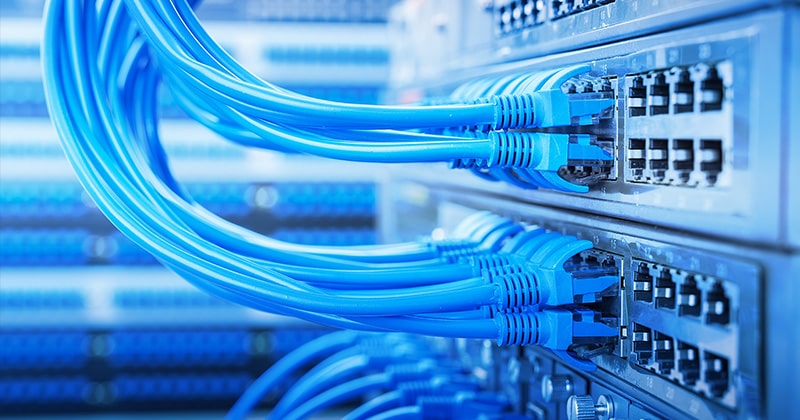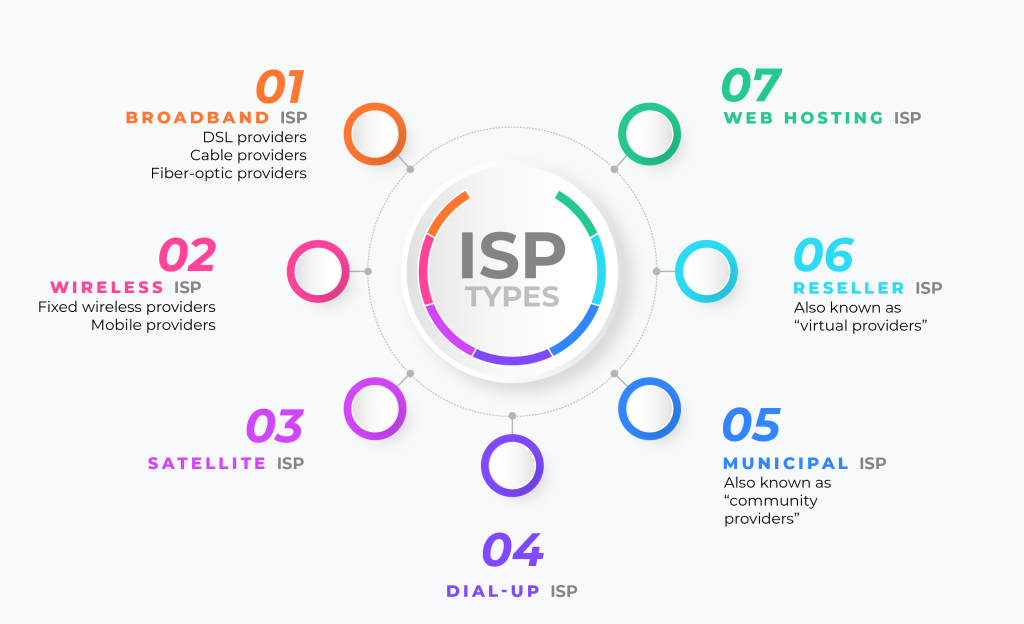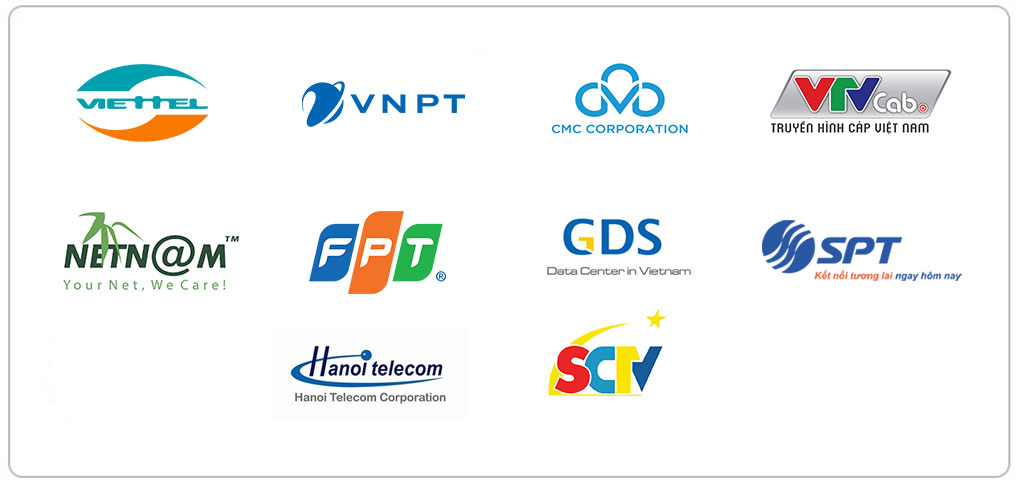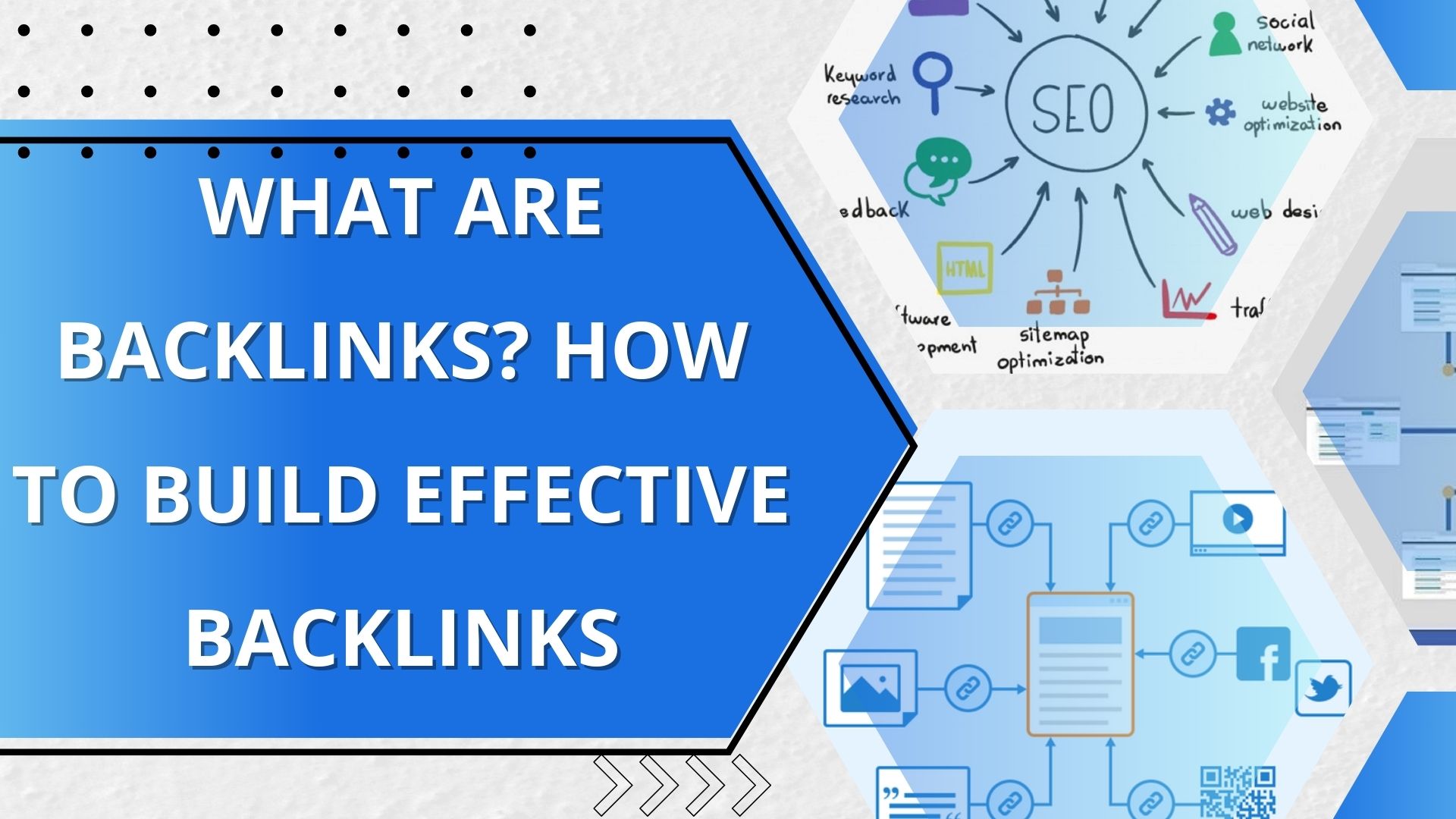The internet is an indispensable part of modern life. However, to access the internet, you need assistance from an Internet Service Provider (ISP). In this article, we’ll delve deeper into ISPs, their roles, and what you need to know when choosing an ISP.
Introduction to ISPs
What is an ISP?
An ISP stands for “Internet Service Provider,” which can be understood as “Nhà Cung Cấp Dịch Vụ Internet” in Vietnamese. ISPs are organizations or companies that provide internet connection services to users and organizations through a variety of means, including cable, DSL, fiber optic, and various other types of connections.
ISPs enable users to access the internet through services such as cable, DSL, or fiber optic and provide additional services such as email, web hosting, and internet security. In the modern internet environment, ISPs play a crucial role in ensuring users can access the internet easily and efficiently.
Key Roles of ISPs
Internet Service Providers (ISPs) play an important role in the internet system, providing the necessary services and infrastructure for users to access and use the internet. Here are the main roles of ISPs:
Internet Connection
The primary role of an ISP is to provide internet connection to users and organizations. ISPs use technologies like cable, DSL, fiber optic, and wireless connections to connect users to the global internet network.
Internet Services
ISPs offer basic internet services such as web browsing, data transmission, email, and many other services. They provide service packages with different speed and bandwidth options to suit the needs of each customer.
Web Hosting
Some ISPs provide web hosting services, allowing users to create and maintain their own websites. They provide storage space on their servers to host websites and databases.
Other Services
ISPs offer various other supplementary services such as email, authentication, internet security, and network solutions. These services help users experience the internet more safely and conveniently.
Network Management
ISPs must manage and maintain their network infrastructure to ensure stable and efficient operation. They need to monitor and maintain servers, transmission systems, and network devices so that users can access the internet continuously and quickly.
Common Types of ISPs
There are several common types of ISPs, each with its own operations and advantages. Here are some common types:
Dial-up ISP
Traditional and popular in the early years of the internet, users use a telephone line to connect to the internet through specific access points provided by the ISP. Access speeds are usually low and limited by the data transmission speed of the telephone line.
DSL ISP (Digital Subscriber Line)
DSL is an internet connection technology via telephone lines, faster and more efficient than dial-up. DSL provides faster access speeds and does not interfere with using the phone simultaneously. However, speed and performance may vary depending on the distance from the DSL server to the user.
Cable ISP
Cable ISPs use cable TV infrastructure to provide internet connectivity. Cable internet can provide higher access speeds and bandwidth than dial-up and DSL. However, speed may be affected by the number of users on the same network and the distance to the nearest cable station.
Fiber ISP
Fiber ISPs use fiber optic cables to provide internet connectivity. Fiber optic cables can provide extremely high access speeds and bandwidth, with higher stability compared to other connection technologies. However, deploying and providing fiber optic services may require significant investments and are only prevalent in large urban areas.
Wireless ISP
Wireless ISPs provide internet connectivity through radio waves or microwave. This type of connection is popular in rural or remote areas where there is no fiber optic or cable TV infrastructure. Wireless ISPs can provide flexibility and convenience in deploying internet connectivity.
Choosing the Right ISP
There are many different Internet Service Providers (ISPs), and the best choice for you will depend on your specific needs and location. Here are some factors to consider when choosing an ISP:
Speed
What speed do you need? If you only use the internet for web browsing and checking email, then you may be fine with a lower speed package. However, if you stream videos or play online games, then you’ll need a higher speed package.
Price
How much are you willing to pay for internet service? Prices can vary greatly between ISPs, so it’s important to compare prices before making a decision.
Availability
Different ISPs are available in different areas. So, it’s important to check which ISPs are available in your area before you start shopping.
Data
Some ISPs have data caps, while others do not. If you use a lot of data, then you’ll need to choose an ISP with no data cap or a high data cap.
Buying Cheap Proxies at proxyv6.net
If you’re looking for a cheap proxy service, then proxyv6.net is a worth considering option. Proxies are an important tool in many online activities, from enhancing security to data collection. Proxyv6.net offers a range of proxies at reasonable prices, allowing you to save costs while still ensuring quality and performance.
With cheap proxies from proxyv6.net, you can experience stable connections and high access speeds. This service caters not only to individual needs but also to businesses and IT professionals. Additionally, proxyv6.net regularly updates its proxy list to ensure flexibility and safety for users.
With an affordable proxy service like proxyv6.net, you can take advantage of the features and benefits of proxies without affecting your budget. Explore the advantages that proxyv6.net brings and leverage the benefits of using proxies in your online activities.







